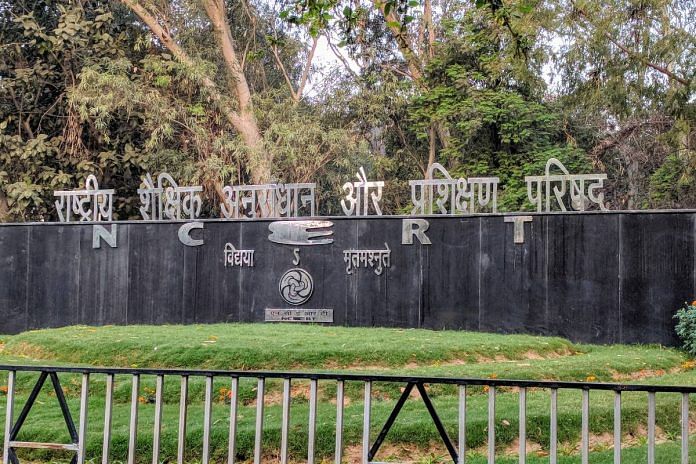New Delhi: Professor Neeladri Bhattacharya, chief advisor to the NCERT’s Textbook Development Committee, has told ThePrint that the removal of certain portions of Mughal history from NCERT textbooks for classes 5 to 12 was done without consulting the body. “It was the Hindu right’s way of deleting portions they are uncomfortable with,” he said.
Currently a visiting professor of history at the Ashoka University, Bhattacharya earlier taught at the Centre for Historical Studies at Jawaharlal Nehru University (JNU).
The Textbook Development Committee was constituted in 2005 to develop the syllabus according to the National Curriculum Framework (NCF) 2005. The committee held several meetings over a year and came out with the final syllabus in 2006. Whenever a change is made in the books, the proposal is first sent to the committee which then analyses the proposal and recommends whether the changes can be made or not.
ThePrint reached NCERT (National Council of Educational Research and Training) Director Dinesh Saklani on the accusation from the panel about not being consulted on the deletions, but he refused to respond.
Last year, a chapter on Mughal rulers called “Mughal courts” was axed from the history textbooks for class 12. The final changes have now been incorporated in the new textbooks published for the academic year 2023-24.
There have also been other key deletions from textbooks across grades, which, according to NCERT, has been done to “reduce the burden” on children because of Covid-19 pandemic.
NCERT has maintained that the deleted portions were “overlapping” and “repetitive” and hence were removed. “Contents of the textbooks have been rationalised in view of overlapping with similar content included in other subject areas in the same class, similar content included in the lower or higher class in the same subject,” the council’s justification read.
Bhattacharya, however, said that “there is no truth in the argument that the chapters were repetitive”. “The Hindu right has long wanted to purge Mughals from Indian history,” he said.
“The purpose of the class XII books — Themes in Indian History I, II, III — is not only to give students a more detailed picture of the themes they have done earlier, but to make them ask different questions. Instead of simply telling them about the events and processes of a period, the kings and queens of those times, they are told about the way historians come to know about the past, the sources they explore, the way they read those records,” he added.
Bhattacharya pointed out that the chapter from which some portions have been removed — ‘Kings and Chronicles’ — explores the activities and politics of the court and the limits of what we can know from these chronicles.
“This is not something you can discuss in class VII. In writing for school students, we need to carefully examine pre-knowledge, what they can grasp and what they cannot. This requires a sensitivity to pedagogic uses… so it is clear that the rhetoric of repetition and rationalisation is, in fact, a way in which the Hindu Right can erase the themes they are uncomfortable with from the pages of history,” he said.
Also read: Modi govt’s two decisions show all-out capture of content — official and unofficial
A panel recommended syllabus ‘rationalisation’
Since the controversy broke out, NCERT director Saklani has gone on record saying that the rationalisation of content in textbooks of subjects, including history, political science and sociology, was done based on the recommendation of a committee.
Several members of the Textbook Development Committee, who spoke to ThePrint on condition of anonymity, said that they were not consulted on the deletions. Some said they were not even aware that the portions they had worked on had been axed.
“There is a way in which changes are done in textbooks. First the original textbook committee has to be notified about the changes, then they examine the proposal, write a comment on why the changes should or should not be made. But that process was not followed in the recent exercise. In fact, we have not been consulted about any changes being made in the books since 2018,” a member of the committee told ThePrint.
Last week, a group of 250 historians, including some of whom have worked on NCERT textbooks in the past, expressed their anguish about the way the deletions were done and asked why they were not consulted. They also issued a public statement condemning the move and demanding that the deletions be withdrawn.
(Edited by Zinnia Ray Chaudhuri)
Also read: ‘Educational censorship’: US non-profit flags Modi govt’s ‘alarming rewriting’ of school textbooks



